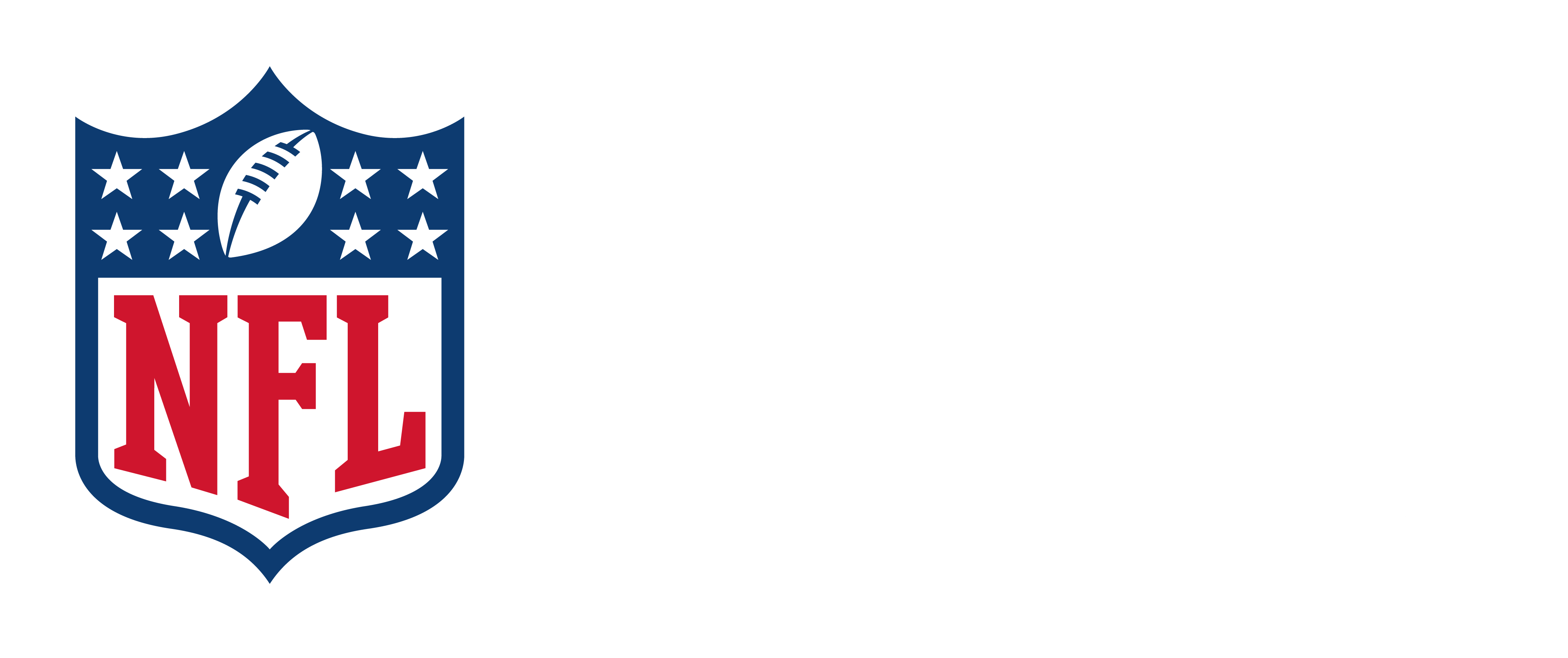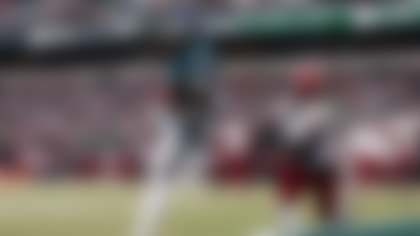The NFL hosted a call with members of the media on September 1, 2020, to discuss the outcomes of a virtual meeting of NFL owners held earlier in the day. The owners meeting covered multiple topics including the league's commitment to and plans for conducting a safe season amid the COVID-19 pandemic. Relevant excerpts from a transcript of the call can be found below and more information on the NFL and NFLPA's jointly aligned COVID-19 health and safety protocols can be found here.
Speakers:
- Roger Goodell, NFL Commissioner
- Allen Sills, NFL Chief Medical Officer
Transcript Excerpts:
Roger Goodell: Good afternoon and thank you all for joining us. We just finished, just about a half an hour ago, a very productive meeting with our owners. We covered several key areas as we approach the start of our 101st season. We touched upon health and safety preparation for the year, gameday planning, testing and contact program. We also had a very thorough discussion on our Social Justice initiative and our plans overall for the season this year.
Like so many fans around the world, we can't wait for the 2020 season to kick off, it's just nine days away in Kansas City.
This obviously will be an unprecedented and historic season in a year unlike any other for all of us. A transformative social justice movement and a heart-breaking global pandemic have made this all of this a unique offseason for us.
I'm proud of the response of our players, our coaches, our personnel and our owners on both of these issues. The NFL family is united more than ever to support one another and help our communities and one another in these challenging times.
***
Goodell: We have also been spending a lot of time learning how to live and operate with the COVID pandemic. It will not be easy, and it will be different, but we are prepared. Working with the NFL and the NFLPA and our medical experts, public health authorities, we have really, truly re-imagined our plans and developed a comprehensive set of protocols that put us in the best possible position to complete the season, culminating with a Super Bowl at the end of the day.
We have been really fortunate that cases of COVID-19 are very low across the league. It's a testament to the plans but most importantly the diligence of the players and teams and their staff.
I would tell you that we know we still have more work to do. We are not going to get comfortable. We will remain vigilant, resilient, flexible and basically adapt to circumstances as needed with public health as our number-one priority as we have all this offseason.
Kickoff is obviously the most optimistic time of the season for fans across the country. As I started off, the 2020 NFL season will be unlike any other, but that optimism is clearly unchanged. We always believe that we can unite fans and communities, and we recognize our role is even more important this year and we want to thank our incredible fans for their continued passion.
Across the league, 70% of our season ticket holders have continued to stay with their clubs and buying their credits for either games later this year or next and it just demonstrates to me the incredible passion of our fans. So, I will stop their and will be happy to take a couple of questions and thank you guys, wish you all well.
QUESTION: Roger, you mentioned you think the league has more work to do in terms of COVID and protocols. What do you think needs to be done or what do you anticipate or the next challenges coming up?
Goodell: I think the big thing for us is again, not getting too comfortable. The protocols are working but you know we are dealing with a lot of uncertainty here. This is a pandemic that we are still learning about. We've had to put together an entire infrastructure of testing across the league, getting results very quickly. But we really have to, obviously, adapt to the medical community here and rely on our experts that have been wonderful in putting together this plan. So, now, as you're executing on it, you have to be willing to adapt to that and you have to change. We have already made changes to our protocols. We've made changes to our testing. We will be looking at further changes to our testing as we get into the regular season. We will be getting into new aspects with travel that we have to be focused on. We will be coming into our stadiums and facilities obviously more frequently, many times with fans. It is just that we have to continue to be vigilant, to be resilient, to be flexible in trying to continue to find ways to learn at every opportunity and do the best things for the health and safety of our players, our staffs, our fans and make sure that that comes first, which has been our driving force throughout this. I believe that is why we've had success to date. But we are not patting ourselves on the back yet. We are just on the eve of the season and we are looking to start and complete the season on time and complete it in a very safe way for everyone who is participating.
QUESTION: First of all, with the fans that are allowed in-stadium and the cities that are going to allow them, would it be easier just to shut the remaining stadiums that haven't made the decision on if fans will be allowed, and say 'hey, can you not do it.' And is that a competitive disadvantage for those teams coming in that aren't allowing fans? There are only a handful of teams that are allowing fans in and would it be easier just to ask all the owners to not allow fans in at this point because too many other teams have decided that they won't do and most teams that are allowing fans, is that kind of a competitive advantage for them?
Goodell: Let me start with a couple things. One is, the decisions about whether fans are coming into our facilities are done after a great deal of discussions with public health officials, locally, government officials, and making sure they understand the plans. We've obviously modified plans and those are ongoing discussions and they will vary right up until the Kickoff game and obviously beyond that. I believe that we will be having a lot of teams that start with no fans at the beginning of the season and they evolve to fans. You know everyone is taking a cautious approach. And we are working with public health officials and that will be our driving priority. We are not going to be going against public health officials.
On your last point, we do not believe it is a competitive advantage. We discussed this very early on with our Competition Committee and with our clubs. We do not see that. We obviously have varying capacity across the league and from our standpoint we want to invite our fans in if we can do it safely and we can do it with the full support of local officials. We think our fans want to come to the stadium. I think it is evident by the number I gave when I opened up as about 70% of our fans are keeping their season tickets deposits with the hopes that they can buy tickets later this season or next season. So, our fans, I'm just overwhelmed by their passion and their desire to follow football and from our standpoint, we are going to create a safe environment in our stadiums and we are going to invite them in whenever we can do that in a responsible and safe way.
MODERATOR: Thank you Commissioner for joining. Let's go to Dr. Sills, who has a couple remarks off the top and then we'll take your questions.
Dr. Allen Sills: First an update about our testing program. I think the results should be in hand to everyone, but if they're not we just released today the results from out testing program from August 21st through August 29th. We did a total of 58,621 tests during that nine-day period. Out of all of those tests that were done, we did have four confirmed positive tests on players, they were each on different teams and six confirmed positive tests on staff members. I'd just like to say that those results confirm the great job that's being done by our clubs. All of the credit really goes to the players, to the coaches, to the staffs who are doing the hard work every day. I believe they are showing us the path forward, that when we consistently follow these protocols at all times, both at the club facility and away from the club facility then we can minimize risk. So, I really want to praise the work that they're doing. As the Commissioner said as well though, we definitely realize we have a long way to go. We have a relentless opponent here, which is this virus and we know that there can be new cases that occur no matter how diligent we are with all of our protocols and personnel. So, we just have to remain very vigilant and realize that we're still very early on, but we're encouraged by what we have seen so far.
We are continuing to monitor new developments in testing technology — especially, the point of care antigen test, but again, anything that we look at that we would choose to adopt has to be more accurate and/or more efficient that what we're currently doing. So, that's something we and our panel of experts continue to monitor very carefully, and we'll look at over the coming months.
I'll say a couple words about the game day protocols. I think you're aware that we updated those and sent those out this week. We are very close to finalizing the testing cadence of what we will do leading up to game day. Again, that's a very active discussion with our experts and with the Players Association and I would expect in the next day or so, we would have an update for you there.
There are a couple other points maybe to point out in the updated protocol. We've continued to decrease the numbers overall in the team travel parties. To decrease the numbers of people that will be in team locker rooms and that's even up to and effecting our owners. We had a part of a protocol put in that includes ownership and will have limited access as far as numbers and will have to be tested if they want to be on the field and in the locker rooms. So, I think everyone has pitched in and that idea actually came from the owners' health and safety committee themselves. Everyone recognizes that reducing numbers all around helps keep us safer.
One other point that came out in those game day protocols that I think is worth mentioning is that our coaches and other staff in the bench area during the games, will now be required to wear face coverings. We think that's an appropriate risk mitigation step as well, so that's something that you'll see as we move into gameplay
***
QUESTION: Hi, thanks very much for doing these phone conference updates. Dr. Sills, this is for you. Last week, the CDC reversed course, pretty startling, on how they do testing of asymptomatics and I'm assuming that there is no change in the testing protocols and contract tracing, etc. if there are any presumed positive tests for players or staff, is that correct?
Sills: Yes, we discussed that change, with our committee of experts and internally and we have not made any change to our current protocol, which as you know, isolates and tests all close contacts, whether they're symptomatic or not.
QUESTION: And just as a follow-up to that, I wondered if you've received any pushback or encouragement, or just the response in general because there are so many things where the testing has aligned with the CDC guidelines and this is somewhat different and I just wondered what the response from the clubs and the players has been, given that everything you've done so far has been pretty successful.
Sills: I think the support from the players and the clubs themselves has been very strong and I think that's based on what you pointed out, that so far we've been able to mitigate new cases and any spread or transmission within our clubs. There has been broad support from that and people recognize that this is going to take sustained and diligent effort, and everyone wants to err on the side of being cautious. So, I think that we will use our own internal data to help inform us as well because obviously, with the numbers of tests that we're now doing, with all the contact tracing information, we're going to have a really unique opportunity to learn how we can better process these different scenarios and how we can continue to mitigate risk along the way. So, those will be active and ongoing conversations, but at this point, I think everyone's very comfortable with the protocols we have in place.
QUESTION: Allen. I'm just wondering… I know some of the teams have been working off of, as far as adding fans, different models going from, you know, from socially distant crowd to half full crowd to the full crowd. Yeah, I'm wondering what you guys are going to be looking for in places like Miami, that will have fans early on and how you guys are going to be sort of tracking, you know, what becomes of those crowds and the aftermath of games? And then, I'm also wondering if you guys have started to work on what the Super Bowl might look like and how different the whole event over the course of that week might look, given the fact that it is less than five months away?
Sills: Sure, yeah. I think to the question about the outcomes with fans in the stands, obviously we want to track those experiences very closely and that's something we'll do in conjunction with the local public health authorities because they'll have the best snapshot of what that impact could be in their communities in the days that are following games. Those are active and ongoing dialogues that we will have with those public health authorities and examining what the impact is. And also, where the status of the pandemic is in each community because if we've learned anything, we've learned that in several weeks' time you can have substantial changes in either direction, in terms of the persistence and the transmission rates within a community. So, I think those are dynamic decisions that you have to make along the way based on the impact that you're seeing and obviously, we'll be monitoring in parallel fashion the impact on our clubs and the club environment as we start games. Although, again, we don't expect a direct impact of that to the fan question. In other words, I think we've put very extensive policies and protocols in place to make sure that there is not any impact of fans being in the stands, on the playing field and the playing environment in any way.
As far as your question on the Super Bowl, I have to confess that that feels about five years away right now. If we've learned anything, it's that this virus and the pandemic itself changes rapidly and so, I think that while, obviously, preliminary planning is underway, we'll certainly be informed with more detail as to what our initial experience is as we start games and in the fan experience and so forth. So, more to come on that.












